Manuela V. Ferro, vice president East Asia and Pacific at the World Bank, visited the School of Economics and Management at Tsinghua University (Tsinghua SEM) on the afternoon of November 21, 2023. She spoke about achieving sustainable development in an uncertain world and addressed the opportunities and challenges facing economic recovery in East Asia. Ferro elaborated on new development opportunities that the rapidly growing service sector and green economy are bringing to developing countries. She spoke with students on topics such as the global economic situation and career path planning. More than 60 students from various programs at the school attended the lecture. The event was hosted by HE Ping, vice dean of Tsinghua SEM.
HE Ping welcomed Ferro and her delegation on behalf of the school and briefly introduced Tsinghua SEM, as well as Ferro and the World Bank.
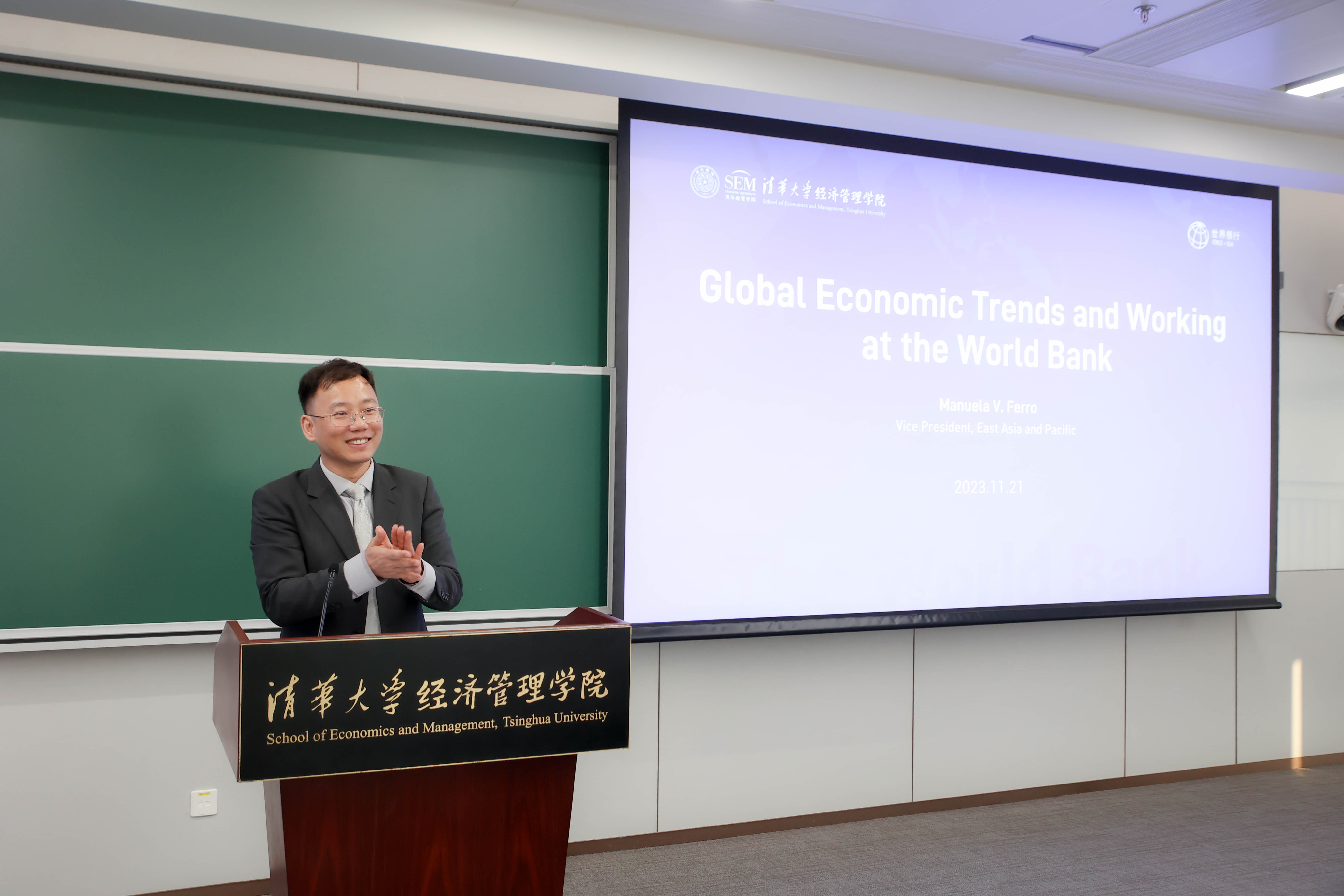
HE Ping presides over the meeting.
During her speech, Ferro first outlined the challenges faced by the global economy, particularly the East Asian economy, in the post-pandemic era. Most countries have been recovering from the recession caused by the pandemic, with East Asian countries, especially China, experiencing a rapid recovery. However, compared to the high-speed growth of the past three decades, economic growth in East Asian countries has slowed since the pandemic. Ferro identified three structural issues as the main challenges facing East Asian economies: firstly, the supply side has experienced a rapid increase in corporate debt even as the green transition is in its early stages; secondly, the demand side is mired by slow export growth and low consumer confidence; thirdly, rising uncertainty about policies has led to a slowdown in foreign direct investment, and worldwide protectionism has hindered free trade.
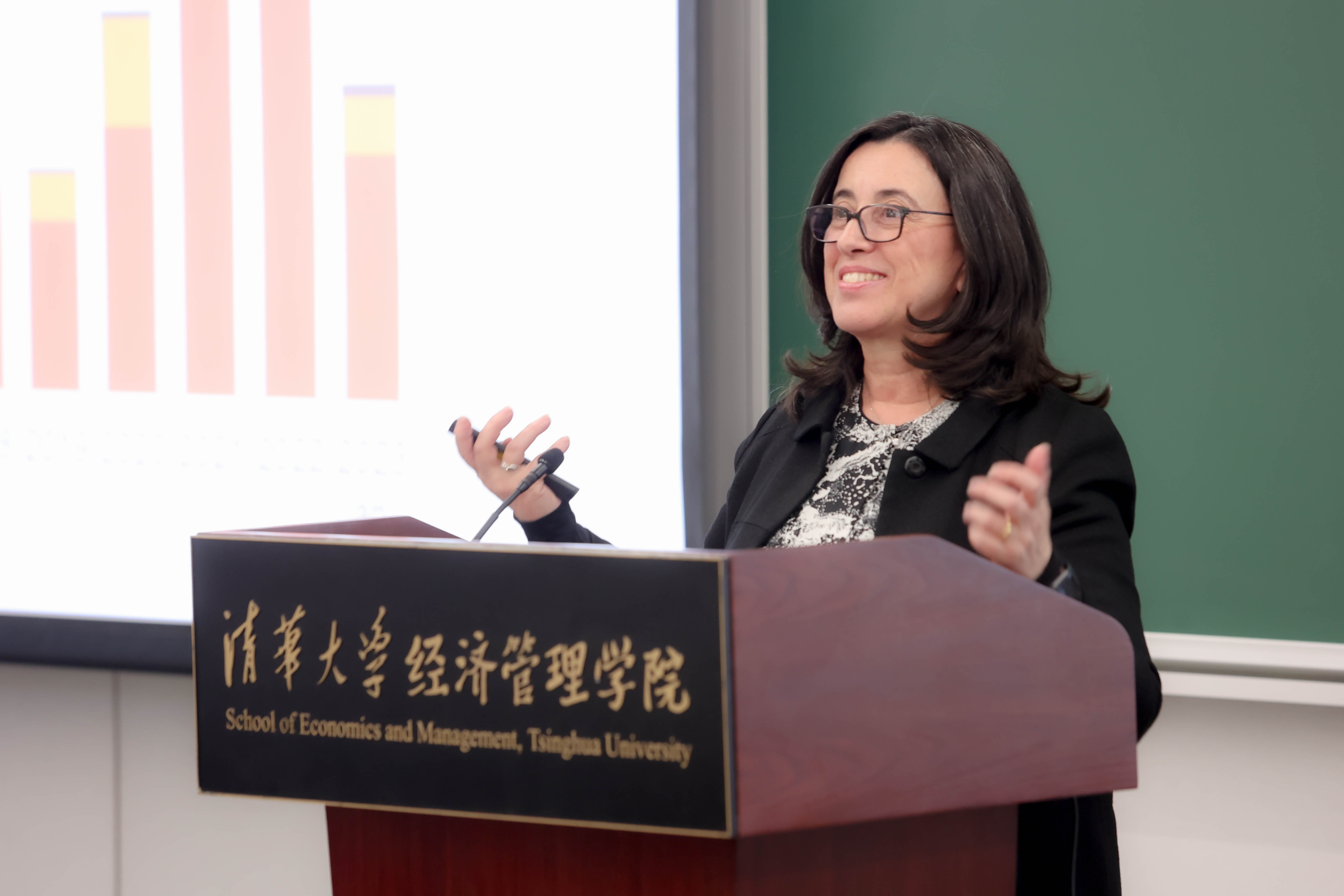
Manuela V. Ferro speaks with students.
Ferro said developing the service sector and undergoing green transformation are feasible paths to achieve sustainable growth. In East Asian economies, the contribution of the service sector to all-factor productivity growth continues to rise. The growth rate of service exports is also higher than that of manufacturing exports (Vietnam being an exception), and the growth rate of foreign direct investment in the service sector far exceeds that in manufacturing. Additionally, the service sector can create more jobs, which may help to alleviate income inequality in developing countries. Ferro said development of the green economy is another growth opportunity. With the proliferation of "carbon taxes," being able to produce goods in a green and low-carbon manner will become a country's core competitiveness. For developing countries, this means green transformation is a necessary path to achieve sustainable growth. Ferro emphasized China's rapid progress in electric vehicles, lithium batteries, solar power generation, and wind power generation, calling them driving forces behind China's future economic growth. Ferro concluded by emphasizing that developing the service sector and green transformation are not contradictory goals because the service sector is the "greenest" industry.
Ferro continued with a summary of several policy suggestions: first, reducing policy uncertainty; second, maintaining openness to ensure smooth international trade and investment; and third, simultaneously developing the service sector and undergoing green transformation. Ferro acknowledged that the pandemic severely impacted the fiscal situation of developing countries, leading some governments to focus on short-term economic goals. She said aligning short-term recovery objectives with long-term growth objectives is crucial to truly overcome the crisis and achieve sustainable development.
In an interactive session after the speech, Ferro spoke about China's experience in alleviating poverty. She said China's success depended on two key factors: firstly, sustained economic growth, which served as an "engine" for poverty reduction; and secondly, appropriate redistribution, which reduced inequality and ensured that the benefits of economic growth reached the masses. The World Bank official said the unique political, historical, and cultural situation of countries make it difficult to copy policies. However, she said China's experience is worth studying. The World Bank has also initiated exchange programs, inviting China to share its poverty alleviation experience with other countries. In response to questions from students about career path planning, Ferro emphasized the importance of lifelong learning and shared her own experiences to encourage students.
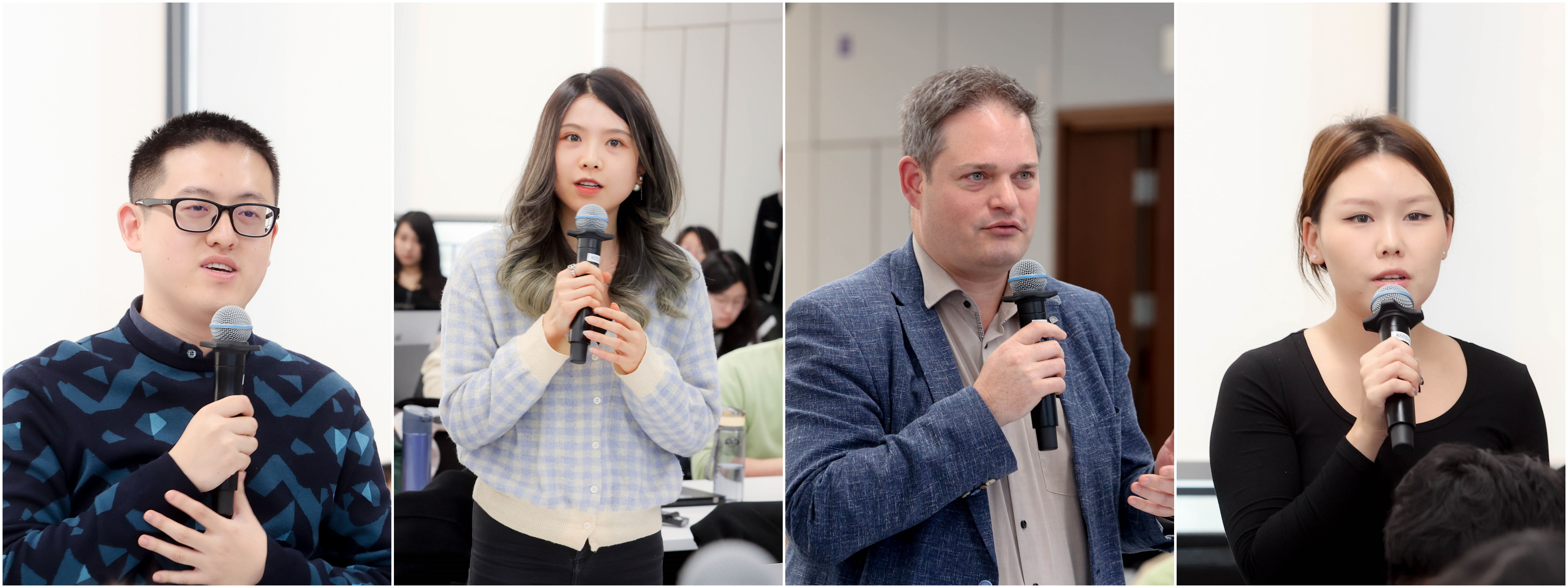
Attendees pose questions during the meeting's Q&A session.
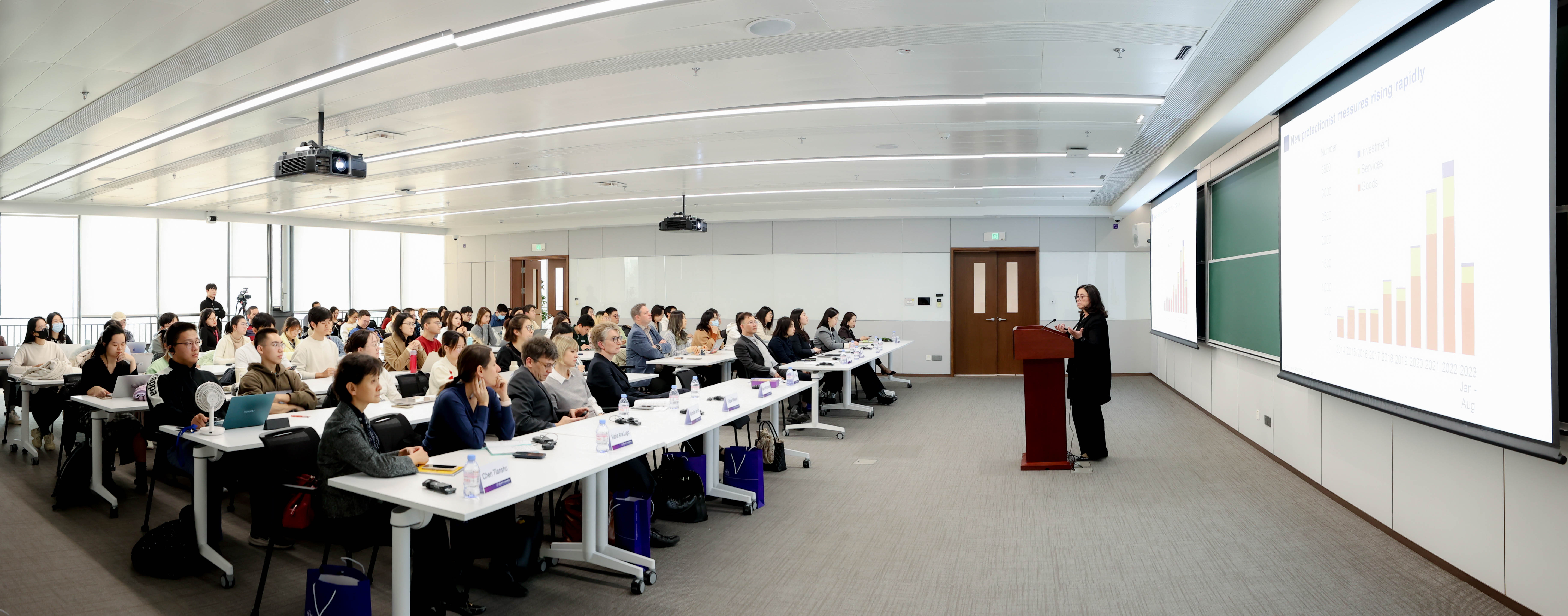
Manuela V. Ferro speaks at Tsinghua SEM.
Prior to her speech, Ferro and her delegation met with Vice Dean HE Ping of Tsinghua SEM. LIAO Ying, director of the Center for Global Competence Development at Tsinghua University, and CHI Wei, assistant dean of Tsinghua SEM, were also present.
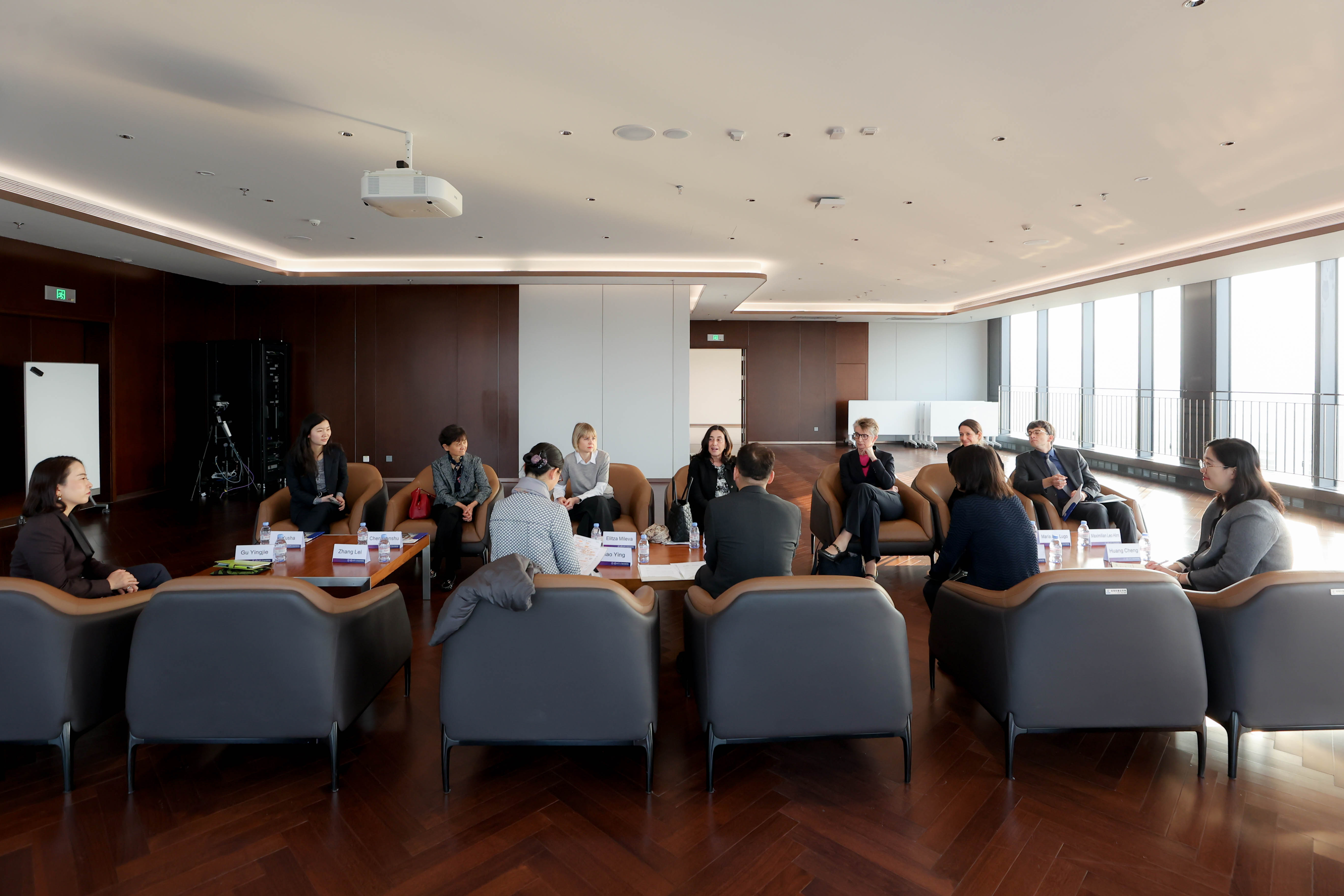
Manuela V. Ferro's World Bank delegation meets Tsinghua SEM representatives.
 Latest News
Latest News